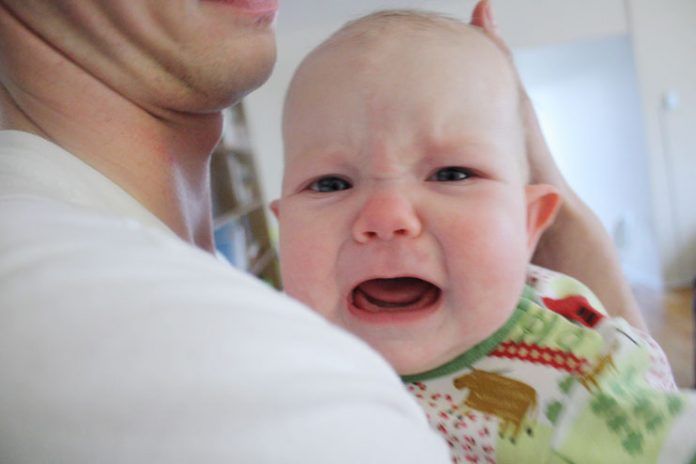Affiliate Disclaimer
Some links in this article are affiliate links. We may earn a small commission if you make a purchase through these links, at no extra cost to you. We only recommend products we find useful to our readersEvery stage in the development of your baby is indeed a different kind of happiness. However, the same cannot be told in teething process. While teething is a major development and shows that your baby is developing naturally, this is not at all easy process not only for you but also for your baby.
Like any other process such as crawling, talking as well as walking, the teething process also considered as one of the important milestones in the life of your baby. It is also true that teething is important for various other works, which your baby is going to do. Every stage in the development of your baby is indeed a different kind of happiness.
To provide more details on this, we have tried to convey some of the amazing details about the teething process of your baby along with its types as well as what parents should expect from it. Read on to get information about when the process teething actually begins.
When Do Babies Start Teething Development Perks
There are basically two major perks your baby gets when the teething process starts. According to the experts, tooth eruption in a baby is a signal that your baby is preparing for eating more solid foods. Your baby will now be able to tear meats and can chew beans and vegetables. This also directly affects your baby’s weight, immunity as well as the development of bones and brain.
Another important thing, which starts after teething is that your baby starts preparing to speak. Experts say that when babies start to eat more solid foods after tooth eruption they also exercising and developing the jaw, tongue, cheeks as well as lips along with oral-motor musculature, which is important for speech development. Teeth are also needed for producing a specific sound which requires the involvement of teeth.
When to expect the beginning of the teething process?
It is important to know when can you expect the teething process to start in your baby so that you can be more careful about it. Usually, in most of the babies, the process of teething starts between the age of 4-6 months. It is not standard, however. In others, it may start early or later. Experts also say that baby’s tooth eruption time depends more on the genetic history of tooth eruption of your whole family. Basically, if you have shown early development in tooth eruption, your baby will also show the same.
Most of the times, it has been found that the front two teeth at the bottom start to develop at the initial stage. These teeth are also known as central incisors. Then the four upper teeth, which are also known as, central and lateral incisors, starts to develop. However, in this process as well, various variations may take place, according to the experts. By the age of three years, your child should be developed by a full set of baby teeth, say the pediatricians.
Things to watch out for in teething
There are some of the things which you should always watch out for when it comes to any process of development in your baby. It has been found that the premature as well as babies born with low-birthweight may face delays in the development of their teeth. This also results in the delay in initial tooth eruption. It is recommended to discuss with your pediatrician if your baby is taking a long time to show the development of initial teething.
If your baby is suffering from other conditions in the process of teething, it is also important to discuss it with your pediatrician. This condition includes,
- You baby having diarrhea, vomiting as well as fever
- The gums of your baby are looking inflamed
- Sometimes the gums may turn blue in color due to the eruption of the cyst, which is swelling of gums above on developing tooth. Even though most of the cysts are benign and does not grow, it is better to check it with a pediatrician to avoid any future health problems.
- Your baby having bumps as well as lesions on gums.
What should parents expect from the teething process?
It is important to note for the parents that your baby may face various problems during the initial days of the tooth eruption. Some of the symptoms your baby may show while tooth eruption includes,
- Rash due to drooling on face and chin
- Gum sensitivity as well as swelling
- Biting
- Problems while sleeping
- Irritability
Experts also suggest that your baby may also refuse to eat or drink during these days and may try to rub the face or tug ears. Even though many parents have reported diarrhea, runny nose as well as a mild fever to their babies during this process, some of the experts suggest that these symptoms cannot be caused due to teething. The symptoms which have more scientific backing are pain due to tiny wounds in gum, which appears due to teeth eruption.
Experts also recommend using cold compress to help your baby in the process of teething. Just provide a clean, chilled washcloth or a cleaned toy to your baby to chew on. Always make sure that the toy is non-toxic before giving it to your child. You can also reduce the pain experienced by your baby by rubbing your gums with the help of clean fingers or by providing chilled foods. You can also check some medication from the pediatrician to relieve the pain if nothing is showing any result.
Always remember that turning to some teethers and teething rings as well as teething gels can cause various problems. The newly developed teeth may puncture the teethers and the substance can be eaten by your baby. Same goes with the teething gels as they can be toxic and may prove harmful for your baby’s health. Therefore, most the health agencies do not recommend using these teething gels. All you need to do is to use some of the home remedies and wait till the breaking of the tooth through the gums, after which the pain starts to disappear.
These are some of the points, which all the parents should keep in mind about the teething process of your baby. Although teething can prove very painful for your baby, it is definitely is an important developmental stage in the life of your loved one.


















